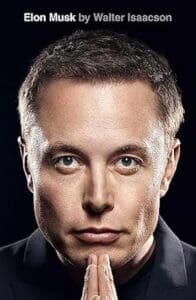
Elon Musk is a great entrepreneur. His success in building Tesla and SpaceX has made him the richest man in the world. But more than that, electric vehicles are critical if the world is to have any chance to achieve net zero emissions. Musk kickstarted that entire industry.
Similarly, SpaceX has had over 260 space flights at a fraction of the traditional cost to taxpayers.
Musk’s negative attributes have made it difficult for me to admit what a great man he is. I fundamentally believe CEOs should underpromise and overdeliver. They should avoid the kind of controversy that will hurt sales or damage the company’s stock price. I don’t believe CEOs should be drama queens, pick fights with regulators, or expect workers to work 80 hours a week.
In 2018 I wrote an article where I reviewed the news surrounding the U.S. Securities Exchange Commission (SEC) filing a lawsuit charging Musk with fraud and seeking to force Musk to step down as CEO of Tesla and bar him from ever serving as a corporate executive at a public company again. The impetus of this was Musk’s tweet in August of that year that he was considering taking Tesla private, adding, “Funding secured.” The SEC viewed this as a materially false statement designed to improperly inflate Tesla’s stock price.
In terms of promises, I was focused on his promises to build an all-electric battery-powered Class 8 semi-trailer truck. I found his claims that it would be ready for production in late 2019 to be highly suspect based on Tesla’s history of not meeting promised delivery volumes for Tesla’s cars. I got hate mail after I wrote that article. Semis were in fact not delivered until the end of last year. The number of units delivered is still very small.
Similarly, Musk continues to promise autonomous driving is right around the corner. He has been making that claim since 2016.
In terms of controversies, they just keep rolling. A partial list would include smoking marijuana on air, buying Twitter and firing 80% of its workers, and challenging Facebook’s Mark Zuckerburg to a cage match.
Musk takes great risks, moves fast, and creates a sense of urgency. These things have helped him accomplish amazing things. A new Musk biography by Walter Isaacson illuminates how his brutal childhood and negative traits have helped him accomplish these things.
Musk has Asperger’s Syndrome. This can lead to a lack of empathy and even brutal behavior towards his employees. This syndrome, and his upbringing, also have led him to not shy away from confrontation and to being quick to fire workers. Many of his employees clearly fear him.
Musk also experiences mood swings and depression when life is too calm. This leads him to find a problem to focus on and then devote manic amounts of energy to “solving” this problem. These traits help him create the urgency that allows his companies to move so fast.
There is a fallacy known as the good-looking-people bias. In this cognitive bias, people tend to attribute more positive qualities – intelligence, competence, friendliness, and success – to physically attractive people. Similarly, we should not correlate being famous or successful with having a sterling character.
The NBA great Charles Barkley once said, “I’m not a role model… Just because I dunk a basketball doesn’t mean I should raise your kids.” He was not conflating being great at something with being good. I, and many others, apparently do.
















